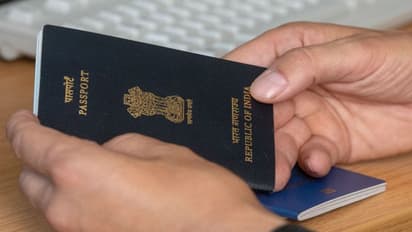India's e-passport rollout to start by end of year, will ensure safe, easy int'l travel; All about it

Synopsis
An e-passport (electronic passport) will work similarly to a standard physical passport, but will also include a small electronic chip within, similar to a driver's licence. The chip will save all of the passport holder's critical information, including name, birthdate, address, and other facts.
Minister of External Affairs S Jaishankar acknowledged that the federal government is working to develop e-passports that will simplify international travel and protect against identity theft. The statement occurred during Passport Seva Divas, during which the minister emphasised the government's objective to improve the citizen experience and public delivery. An e-passport (electronic passport) will work similarly to a standard physical passport, but will also include a small electronic chip within, similar to a driver's licence. The chip will save all of the passport holder's critical information, including name, birthdate, address, and other facts.
While it may appear to be a standard passport, an e-passport contains a small electronic chip inside, which is comparable to a driver's licence in certain ways. The chip will keep all of the information on the passport, including the person's name, date of birth, address, and other details.
E-passports, which will include an RFID chip and antenna inserted as an inlay in the rear cover, will allow officials to instantly check a traveler's data. The information of the passport bearer will be saved in the chip and the data page of the passport.
Also Read | Budget 2022: E-passports to be rolled out in 2022-23, announces FM Sitharaman
The government intends to decrease the circulation of false passports by improving security and eliminating duplication and data manipulation with the issuing of e-passports.
Passports that are already in circulation will stay valid. When their passports are renewed, they will be replaced by e-passports. TCS will also collaborate with MEA to establish a new command and control centre for the distribution of new e-passports. The IT business also intends to update existing PSKs and systems as well as develop a new solution for producing chip-based passports.
According to the International Civil Aviation Organization, more than 100 countries, including Ireland, Zimbabwe, Malawai, and India's neighbours Pakistan, Nepal, and Bangladesh, have implemented e-passports.
Also Read | United States issues first passport with gender 'X' marker
Stay updated with all the latest Business News, including market trends, Share Market News, stock updates, taxation, IPOs, banking, finance, real estate, savings, and investments. Track daily Gold Price changes, updates on DA Hike, and the latest developments on the 8th Pay Commission. Get in-depth analysis, expert opinions, and real-time updates to make informed financial decisions. Download the Asianet News Official App from the Android Play Store and iPhone App Store to stay ahead in business.